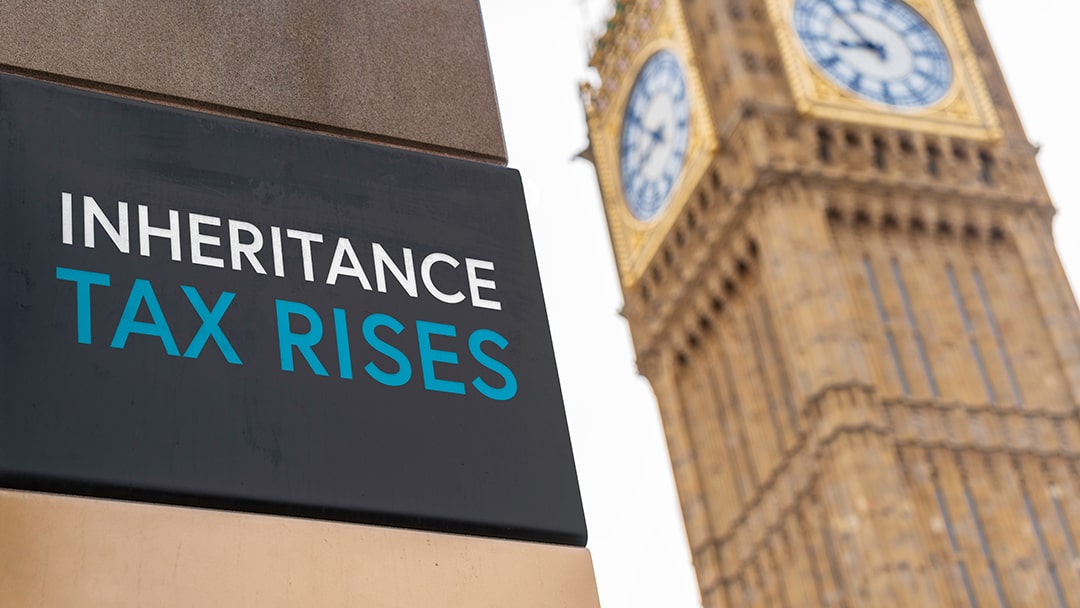Why Your Estate Might Get Taxed More—And What You Can Do About It
Inheritance tax (IHT) has long been one of the most controversial levies in the UK. Once seen as something only the very wealthy would encounter, it’s increasingly catching out ordinary families—thanks to a mix of frozen thresholds and rising asset values. The result? HMRC’s inheritance tax receipts are climbing sharply, and more estates are being dragged into the net each year.
The Inheritance Tax Surge
Recent figures show HMRC collected £2.22 billion in IHT between April and June 2025, up £134 million compared to the same period last year. At this pace, annual receipts could exceed £9 billion, with forecasts suggesting as much as £14 billion by 2030.
Why the spike? Much of it comes down to what’s known as “fiscal drag.” The nil-rate band—the threshold at which inheritance tax begins—has been frozen at £325,000 since 2009, and the additional residence nil-rate band (RNRB) of £175,000 has also been fixed. While these thresholds have stood still, house prices, investment portfolios, and even modest savings have steadily climbed. More estates are crossing the line, meaning more families are paying 40% tax on anything above the allowance.
Who’s Affected?
You might assume inheritance tax only affects the wealthy, but rising property values mean many middle-class families—especially in the South East—are facing unexpected tax bills. A family home that has doubled in value over the past decade could now single-handedly push an estate into taxable territory. Without careful planning, your loved ones may find themselves facing a large bill just to inherit what you hoped to pass on.
Steps You Can Take to Reduce the Burden
1. Use Gifting Strategies
You can give away up to £3,000 each tax year without it counting towards your estate, and any unused allowance can roll over for one year. Smaller gifts of up to £250 per person per year are also exempt. Larger gifts can fall outside your estate if you survive for seven years after making them—this is known as the seven-year rule.
2. Update Your Will Regularly
An outdated will could unintentionally increase your family’s tax exposure. Regularly reviewing your will ensures you make full use of allowances, and that your assets are distributed in the most tax-efficient way.
3. Consider Trusts
Trusts can help move assets out of your estate and provide flexibility in how wealth is managed and passed on. They’re particularly useful if you want to support children or grandchildren while retaining some control. However, they can be complex and may carry their own tax considerations, so professional advice is essential.
4. Make Use of the Residence Nil-Rate Band
If you’re leaving your home to direct descendants, the additional £175,000 allowance can be hugely valuable. Combined with the main allowance, a married couple can currently pass on up to £1 million tax-free—if structured correctly.
5. Seek Professional Guidance
Tax rules change frequently, and what works for one family may not be suitable for another. A financial adviser or estate planner can help tailor a strategy to your circumstances, balancing generosity with prudence.
Looking Ahead
Unless thresholds are lifted, more estates will inevitably fall into the inheritance tax bracket in the coming years. While the policy debate continues—some argue IHT is unfair double taxation, others see it as vital for redistributing wealth—families can’t afford to wait for reform. Proactive planning is the only way to protect your estate and ensure more of your wealth goes where you want it to
Even if you don’t consider yourself wealthy, the combination of frozen thresholds and rising asset values means inheritance tax could affect you. By planning ahead—through gifting, trusts, and smart will management—you can reduce the burden on your loved ones and pass on more of your legacy.


0 Comments